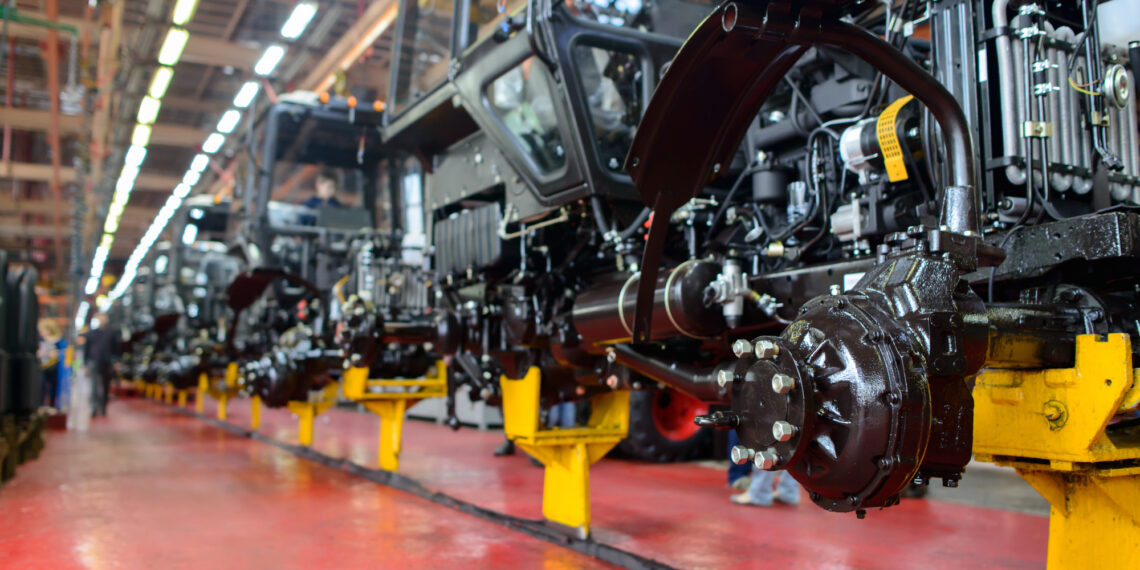The global manufacturing industry is worth nearly a trillion dollars. That, mind you, takes into account the hit taken by most operations due to COVID.
While manufacturing logistics and efficiencies have often been an afterthought for US businesses due to outsourcing, we’re seeing a slow trend of re-shoring. That may very well put manufacturing back on your list of things to focus on.
If you run a manufacturing operation, are auditing one, or are thinking of managing manufacturing in the future, understand that getting your logistics in order will be integral to your success.
For the uninitiated, manufacturing logistics is a broad topic. It describes the movement of items to your manufacturing plant, within it, and out of it. In this post, we share 7 key advantages being mindful of logistical practices and seeking to optimize them can bring to an organization.
Table of Contents
1. Better Quality Products
The more optimized an organization’s manufacturing logistics are, the better quality products that an organization is liable to put out.
That’s because a great internal logistics strategy saves team members time. That saved time means more audits that can be put in place between when a product is minted and when it gets loaded onto the back of a truck.
How many quality control audits do you have in place at your plant or the one you’re working with? Are those quality checks built into workflows or do they happen haphazardly as teams have time?
Being mindful of logistics begs you to answer those questions and make adjustments to ensure that what you’re shipping is what consumers expect.
2. Staying Ahead of Competition
Companies with the best processes tend to enjoy the highest levels of success. Today, a lot of the process focus that’s being implemented into organizations is pointed at manufacturing logistics.
Major manufacturers are taking cues from tech-driven companies like Amazon and leveraging various tools to pick up efficiency on warehouse floors, enhance the operational efficiency of contractors in their supply chains, and more.
By being proactive when it comes to your manufacturing logistics, you put yourself in a position to, at best, get ahead of your competitors. At worst, you’ll stay in lock-step with them.
3. Putting Out Products Faster
When you assess the flow of items in, around, and out of your manufacturing locations, you’re going to notice a lot of efficiencies. Believe us when we say that even floor managers that are confident in how their processes are supporting their product creation are almost always shocked to find the number of bottlenecks they have.
Those bottlenecks being identified, assessed, and eliminated allows products to get minted and shipped faster. That’s extra time you can use to add more to your production slate and drive more revenue for your company.
4. Optimizing Relationships With Contractors
Most manufacturing operations don’t exist in a vacuum. Many rely on third-party contractors to service specialty parts, to help find out more about/repair precision machinery, etc.
Are your contractors reacting as quickly as you need them to, to keep your operation flowing smoothly? If you’re not sure, make finding out part of your logistics overhaul and hold third-parties accountable.
Your ability to manufacture is only as good as the weakest link in your chain. Therein lies the importance of making partners part of your logistical assessment.
5. Better Track Records With Customers
Whether your products go directly to consumers, to other companies for further manufacturing, or to distributors, better logistics means bigger smiles.
Everybody likes getting orders ahead of schedule. They also like products that exceed expectations on the quality front.
By being able to deliver on those wants, you’ll find yourself side-stepping issues. Those issues include customer churn and client acquisition.
6. Cost Savings
Assessing manufacturing logistics and making consequential improvements inevitably leads to cost savings.
More quality checks mean fewer product recalls. Removing red tape and streamlining workflows also means less manpower will be required to get things done.
Given the savings that investing in your manufacturing logistics presents, we’re always baffled when organizations cite cost as a reason why they don’t want to conduct a logistics audit. Believe us when we say that you’ll find enough savings to offset the physical and opportunity cost that comes with making logistical improvements.
7. Better Working Conditions
Companies can get so focused on how logistics strategy can help customers that they forget about their workers. That’s shortsighted seeing as how better logistics in manufacturing is a big win for employees.
When you’re able to make team member’s jobs easier, they’ll reward you with their loyalty. Reduced labor needs through streamlining also creates opportunities to pay remaining employees better.
Employee turnover can amount to 33% of a position’s annual salary. With that in mind, taking care of the people you rely on is of clear importance when managing costs and keeping operations efficient.
Manufacturing Logistics Should Be on Your 2021 To-Do List
With 2020 limping to a close, it’s time to start assessing how your company is going to make the most out of 2021. We hope that with the help of the tips we’ve shared, you choose to prioritize manufacturing logistics.
In doing so, you’ll increase output, revenue, and satisfaction. In our opinion, those are three things that are well worth investing in.
Are you still scratching your head when it comes to logistics? Do you want to dive deeper into how supply chain upgrades can help you?
If so, we welcome you to explore additional content on our blog.

